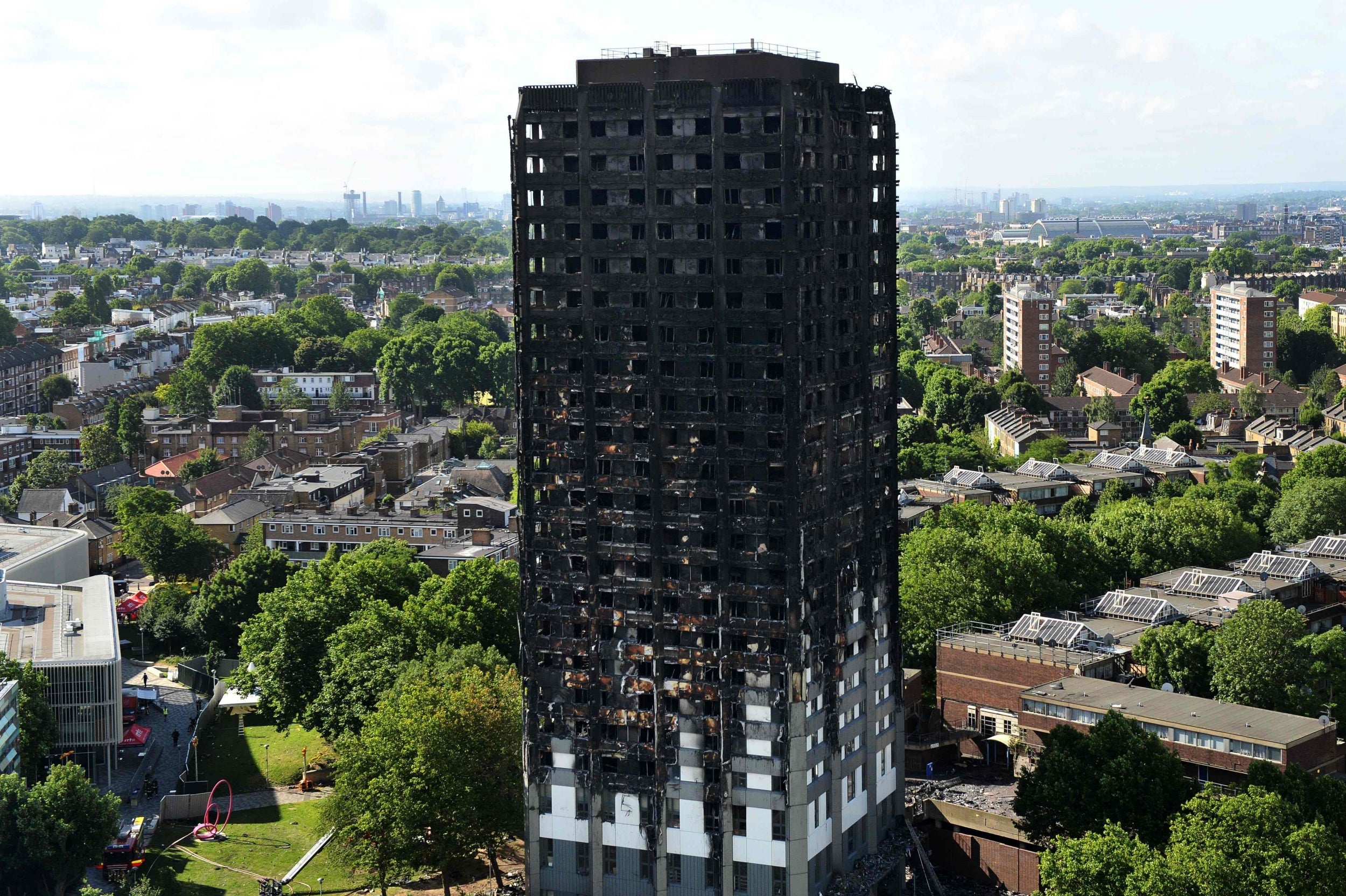Grenfell households still waiting for permanent housing three years on
Some of most vulnerable survivors still not re-housed due to 'severe lack of investment in affordable housing'

Families that lost their homes in the Grenfell Tower blaze are still waiting for permanent housing three years after the tragedy.
More than 200 homes were lost in the blaze on 14 June 2017 that killed 72 in the West London tower and the walk beneath it.
In the aftermath, hundreds of people who were left homeless due to the inferno, including many children, were placed in bed and breakfast hotels and temporary flats while they waited for permanent housing.
Now figures from Kensington and Chelsea Council show that there are still seven households living in temporary accommodation. There are also said to be around 10 households who used to live in the tower who have since requested to be moved again as they were placed into permanent that was unsuitable.
Around half of these requests have been successful, with the others either unsuccessful or still pending, according to the North Kensington Law Centres (NKLC).
Spike Western, housing paralegal at North Kensington Law Centre, told The Independent the delays stemmed from a failure by successive governments to provide adequate social housing.
“The households who have still to be rehoused permanently following Grenfell are the most vulnerable survivors. They represent either those with particular housing needs, such as those arising from a disability, or those on whom moving permanently is something that cannot be rushed and must only be done when the survivor is ready,” he said.
“The damage has been done, and that is severe lack of investment in social and affordable housing over a long period, meaning there aren’t a whole lot of suitable options."
Mr Western added: “We must remember that those affected by Grenfell are still awaiting justice, which has only been further delayed by the postponement of the inquiry due to Covid-19.”
A spokesperson for Kensington and Chelsea Council said five of the seven households still waiting to be permanently re-housed had accepted a permanent home but not yet moved in, and that the council was continuing to support the remaining two households to find a home to settle in.
They said the council had been working with households at their own pace to allow them to find a new home that suits them rather than working towards artificial deadlines.
A government spokesperson said: “The Grenfell Tower fire was a devastating tragedy and we will ensure everyone affected continues to receive the support they need with over £158m committed to supporting the community so far, including with rehousing costs.
“We are committed to ensuring people have a safe, secure, affordable place to live – since 2010 we have delivered over 464,500 new affordable homes, including homes for social rent and are bringing forward the biggest cash investment in affordable housing for a decade with £12bn from next year until 2026.”
It comes amid widespread concerns that the government has failed to act on warnings about dangerous cladding which still covers thousands of tower blocks across the UK.
Last summer, the then-housing secretary James Brokenshire said he expected all Grenfell-style aluminium composite material (ACM) cladding would be removed by June 2020.
Grenfell Tower Inquiry: photos of inside the flat where fire began
Show all 18However, the latest figures from the Ministry of Housing, Communities and Local Government (MHCLG) show there are still at least 300 high-rise residential and publicly owned buildings with ACM cladding in England yet to be remedied.
It is estimated around 1,700 more buildings have some other form of dangerous cladding, such as timber or High Pressure Laminate.
The second phase of the Grenfell inquiry, which was halted on 16 March by chairman Sir Martin Moore-Bick due to coronavirus, is set to resume on 6 July, although with a limited number of people in the room.
Subscribe to Independent Premium to bookmark this article
Want to bookmark your favourite articles and stories to read or reference later? Start your Independent Premium subscription today.

Join our commenting forum
Join thought-provoking conversations, follow other Independent readers and see their replies